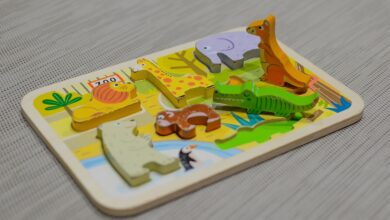The Cognitive and Emotional Benefits of Puzzle Games on Elderly Adults

As individuals age, their cognitive functions tend to decline. However, studies have shown that regularly engaging in puzzle games can help in preserving and enhancing cognitive abilities in elderly adults. One of the main cognitive benefits of puzzle games is the improvement in memory. These games often require players to remember patterns, sequences, or specific details, stimulating the brain’s memory centers and strengthening long-term memory.
Furthermore, puzzle games also improve problem-solving skills. These games are designed to challenge individuals by presenting complex problems that require logical thinking and strategizing. By engaging in puzzle games regularly, elderly adults can sharpen their analytical skills, think critically, and enhance their problem-solving abilities.
Another cognitive benefit of puzzle games is the improvement in attention and concentration. These games demand focused attention and concentration to decipher patterns or piece together different elements. Such mental exercises stimulate various regions of the brain responsible for attention, resulting in a greater ability to concentrate and sustain attention for more extended periods.
In addition to cognitive benefits, puzzle games also provide emotional benefits to elderly adults. As individuals age, they may experience feelings of loneliness, isolation, or even depression. Engaging in puzzle games can help combat these emotional challenges by providing a sense of accomplishment, boosting self-esteem, and fostering a positive mood.
Puzzle games can also serve as a social activity for elderly adults, allowing them to bond and interact with others. Playing puzzle games with family members, friends, or in community centers fosters social connections and reduces feelings of loneliness. These shared experiences not only provide entertainment but also enhance emotional well-being and mental health.
Moreover, puzzle games help reduce stress and anxiety. They act as a form of relaxation and escapism from daily worries and concerns. By challenging the mind and providing a sense of accomplishment, puzzle games help redirect focus and promote a calm and serene state of mind.
It is essential to note that the benefits of puzzle games on elderly adults can be seen regardless of the specific type of puzzle game chosen. Whether it is jigsaw puzzles, crossword puzzles, Sudoku, or even digital puzzle games, all contribute to the cognitive and emotional well-being of elderly adults.
In conclusion, puzzle games offer numerous cognitive and emotional benefits to elderly adults. By engaging in these games regularly, elderly individuals can improve their memory, problem-solving abilities, attention, and concentration. Additionally, puzzle games provide emotional well-being by boosting self-esteem, reducing feelings of loneliness, and promoting relaxation. As such, incorporating puzzle games into the daily routine of elderly adults can be highly beneficial for their overall cognitive and emotional health.





